

— Blogs —
—Products—
 Consumer hotline +8618073152920
Consumer hotline +8618073152920 WhatsApp:+8615367865107
Address:Room 102, District D, Houhu Industrial Park, Yuelu District, Changsha City, Hunan Province, China
Product knowledge
Time:2024-11-10 16:06:58 Popularity:2231
A soil moisture sensor is a device that monitors the moisture content of soil in real time. It indirectly reflects the moisture condition of the soil by measuring parameters such as electrical resistance, capacitance or electromagnetic waves in the soil. These sensors are usually installed in different locations in the farmland and transmit data to the data center through wired or wireless means to provide real-time and accurate soil moisture information for agricultural production.
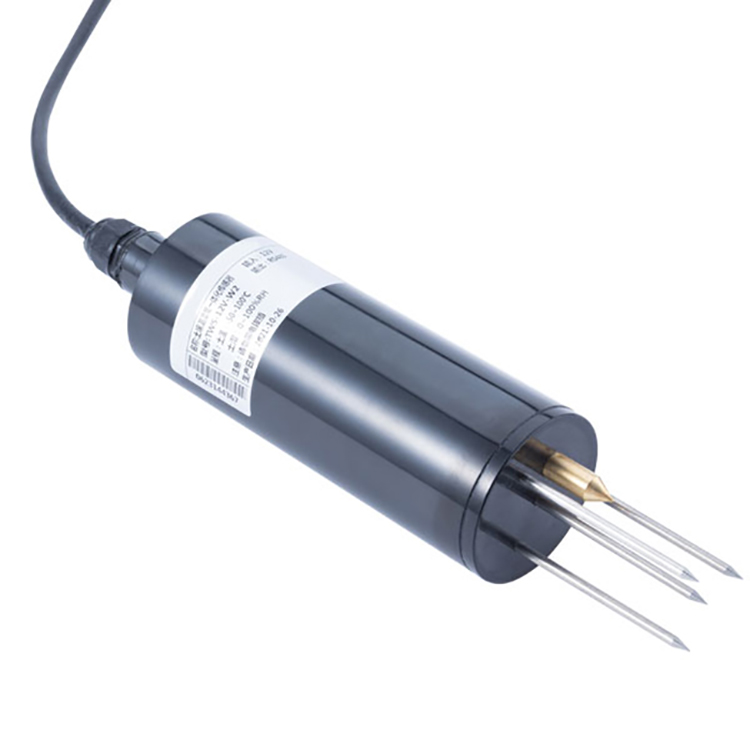 | 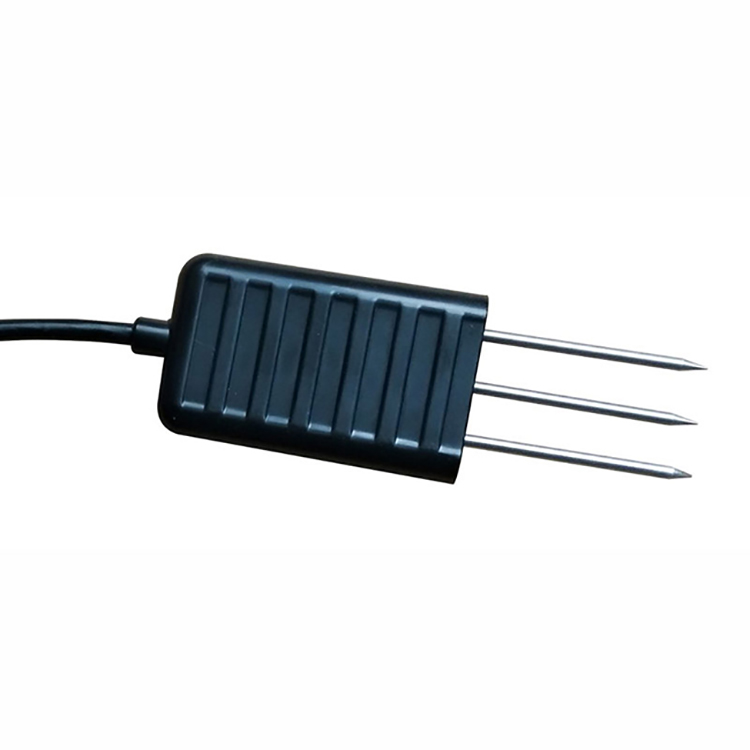 | 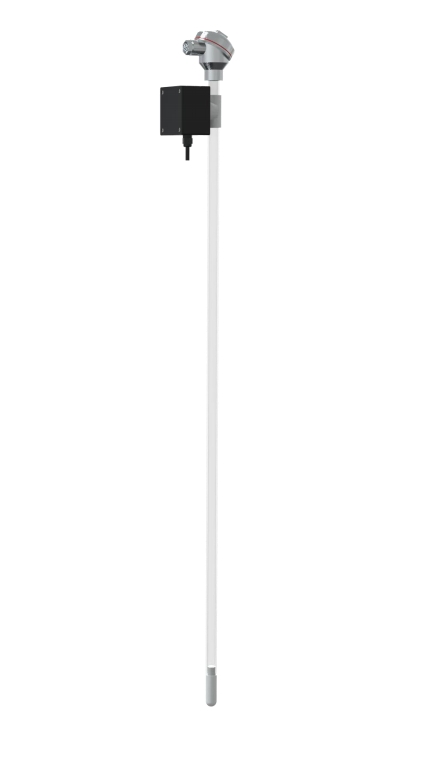 | 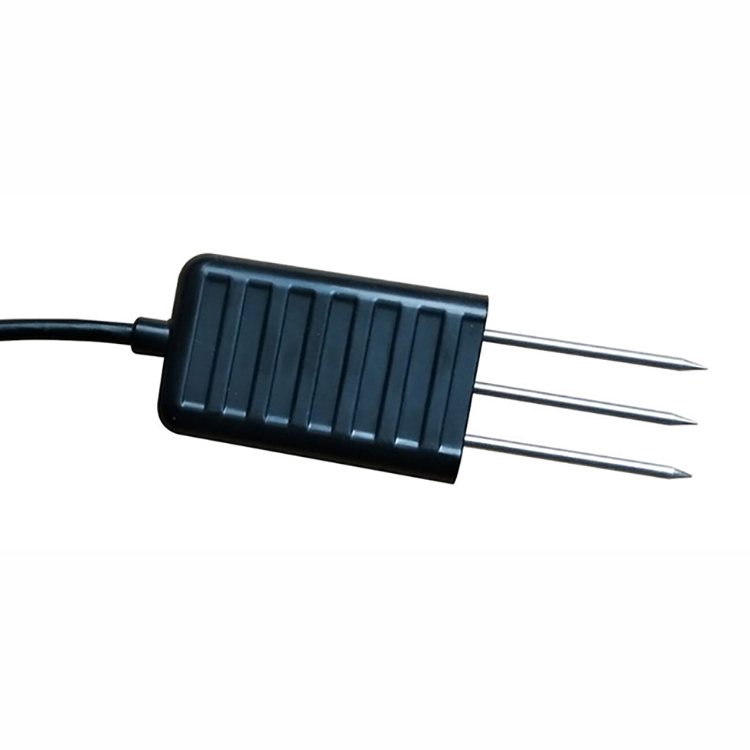 |
| Soil Moisture Temperature sensor | Soil NPK Sensor | Tensiometer | 3-in-1 Soil Temperature Humidity EC Sensor |
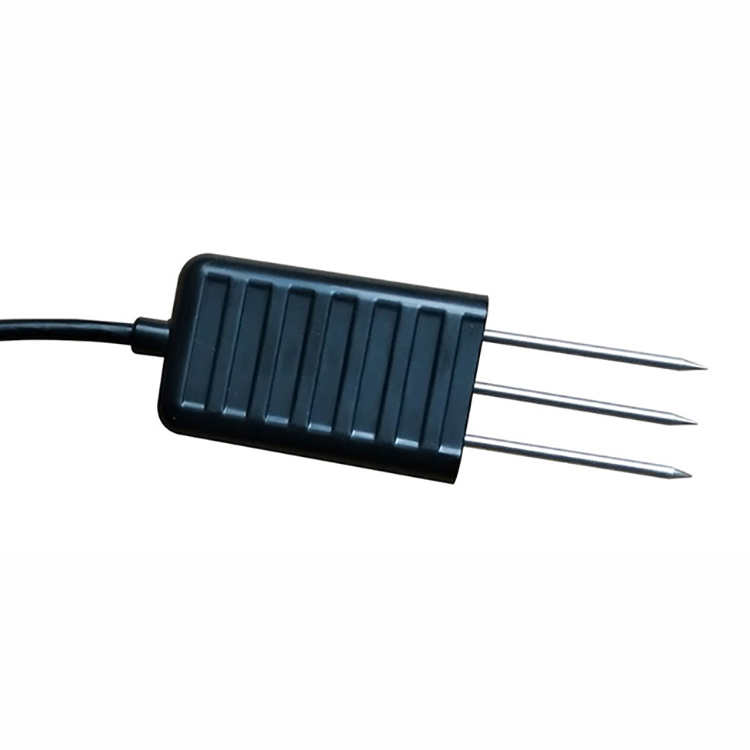 | 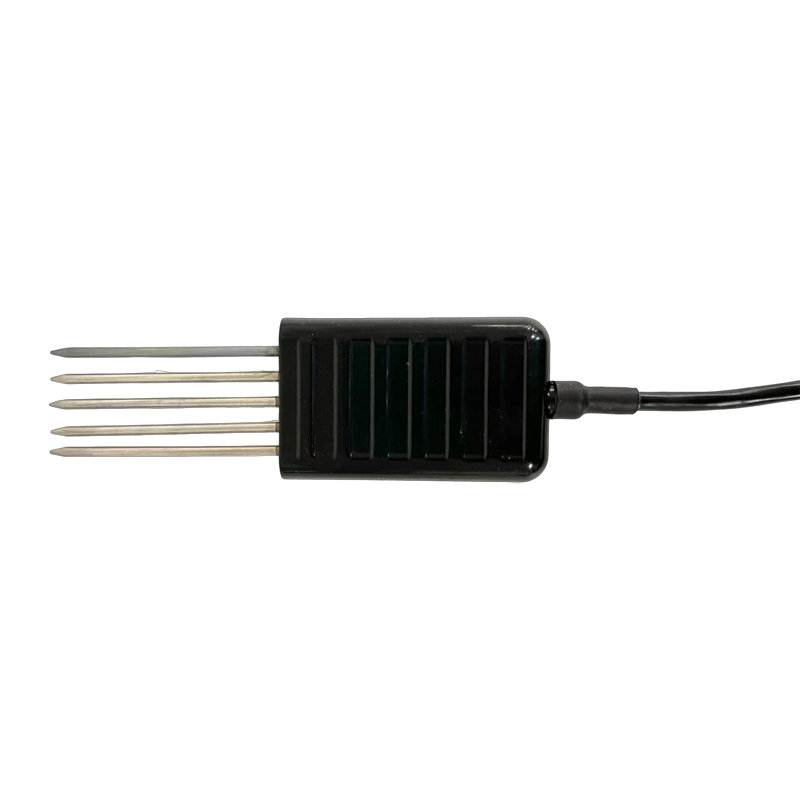 | 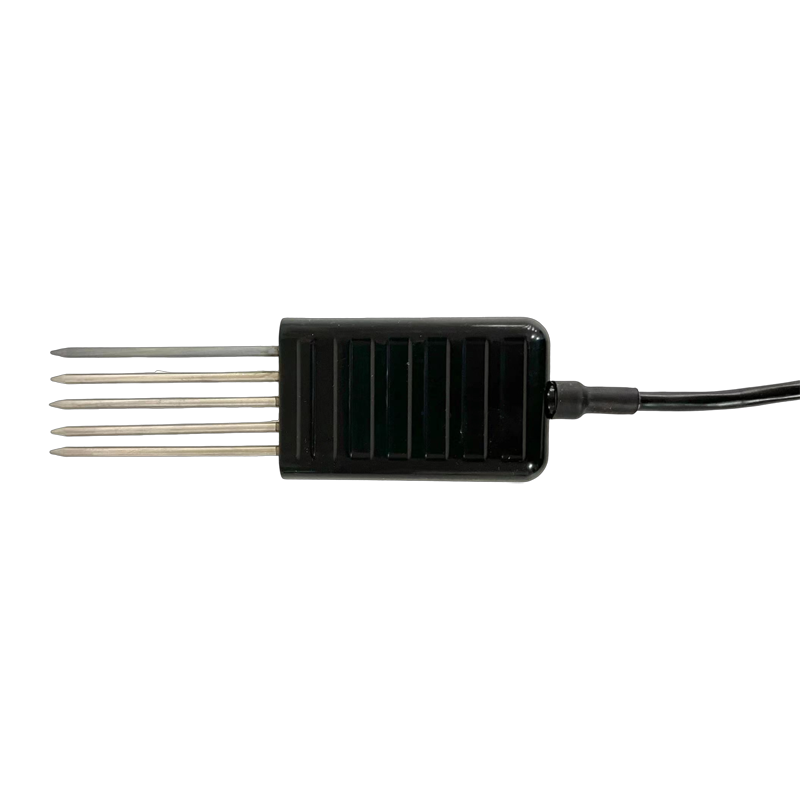 | 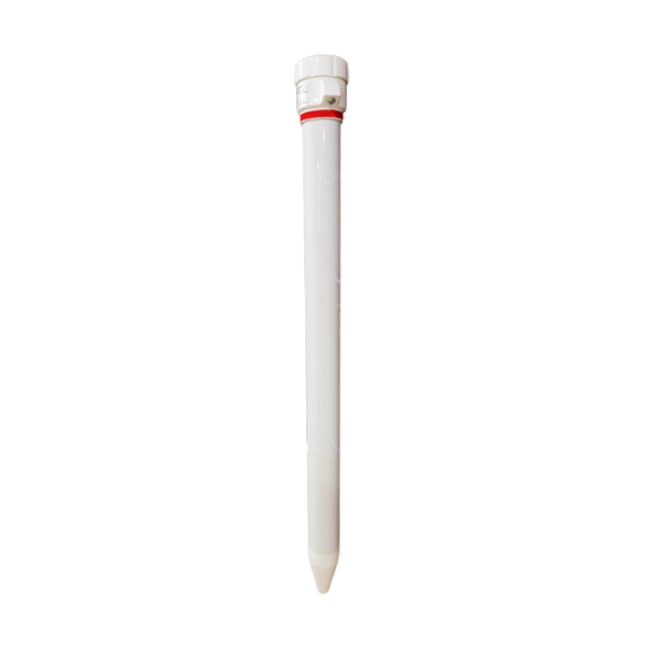 |
| 4-in-1 Soil Temperature Moisture EC Salt Sensor | 7 in 1 Soil Integrated Sensor | 8 in 1 Soil Integrated Sensor | Multi depth soil moisture sensor |
There are various types of soil moisture sensors, mainly including the following:
- Principle: Humidity is inferred by measuring soil resistance, which is negatively correlated with soil moisture content. When soil moisture increases, the electrical conductivity of the soil increases and the resistance value decreases; conversely, the resistance value increases. Advantages: Simple structure and low cost.
- Advantages: simple structure, low cost.
- Disadvantages: affected by soil salinity, relatively low accuracy.
- Principle: Using the moisture-sensitive capacitor as the sensitive element, reflecting the change of soil moisture by measuring the change of capacitance value. The material of the moisture-sensitive capacitor has a strong adsorption capacity for water molecules, and the amount of adsorbed water changes with the ambient humidity, thus causing changes in the capacitance value. Advantages: higher accuracy, suitable for soil humidity sensors.
- Advantages: Higher accuracy, applicable to a wide range of soil types.
- Disadvantages: relatively high cost.
- Principle: Utilizing the electromagnetic pulse principle, the apparent dielectric constant of the soil is measured based on the frequency of electromagnetic wave propagation in the medium to obtain the relative soil moisture content. fdr sensors have the advantages of simplicity and safety, rapidity and accuracy, continuous fixing, automation, wide range, less calibration, etc. Advantages: high accuracy, applicable to many soil types. disadvantages: relatively costly.
- Advantages: high accuracy, suitable for a wide range of soil types, moderate cost.
- Disadvantages: requires periodic calibration.
- Principle: Soil moisture is determined by measuring the propagation time of an electromagnetic wave through the sensor probe. tdr sensors are highly accurate and have high resolution.
- Advantages: High accuracy, suitable for scientific research and demanding agricultural applications.
- Disadvantages: high cost and complex operation.
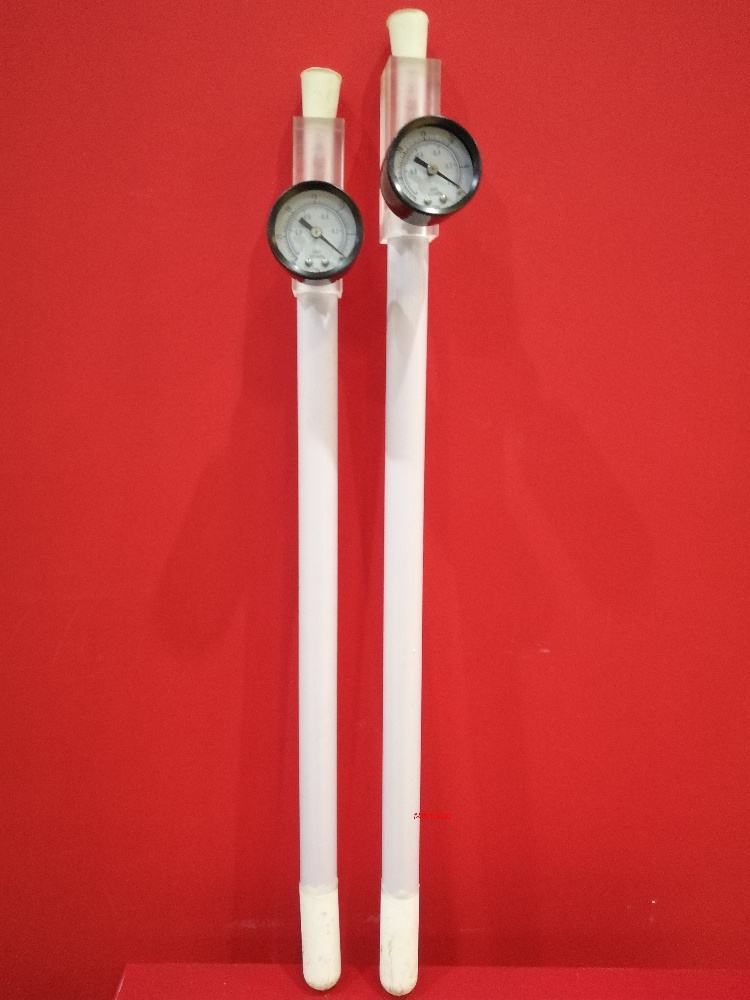
- Principle: Indirect assessment of moisture by measuring the tension of the soil to hold water. Tensiometers are suitable for specific research or special soil conditions.
- Advantages: Can provide quantitative measurements of soil moisture tension.
- Disadvantages: Complicated to operate and costly.
- Principle: Reflects changes in soil moisture content by measuring conductivity. The conductivity within the gypsum block varies with soil moisture.
- Advantages: low cost, simple operation.
- Disadvantages: low accuracy, suitable for general use.
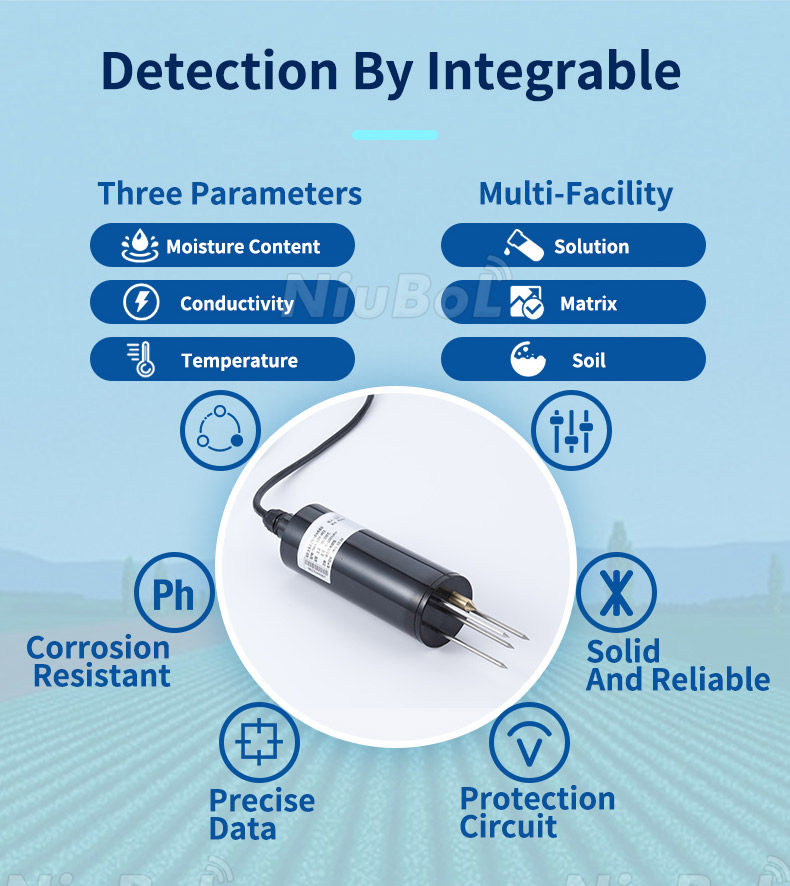
There is no absolute “best” sensor, as each sensor has its own specific application and advantages. The choice of sensor depends on the following factors:
- Accuracy requirements: Research applications may require a highly accurate TDR sensor.
- Cost: Users with limited budgets may choose a more economical FDR or resistive sensor.
- Ease of use: Users requiring simple operation and maintenance may prefer capacitive or tension sensors.
- Soil type: Different soil types may require different types of sensors.
- Application scenarios: Different scenarios such as farm irrigation, greenhouse management, and scientific research may require different types of sensors.
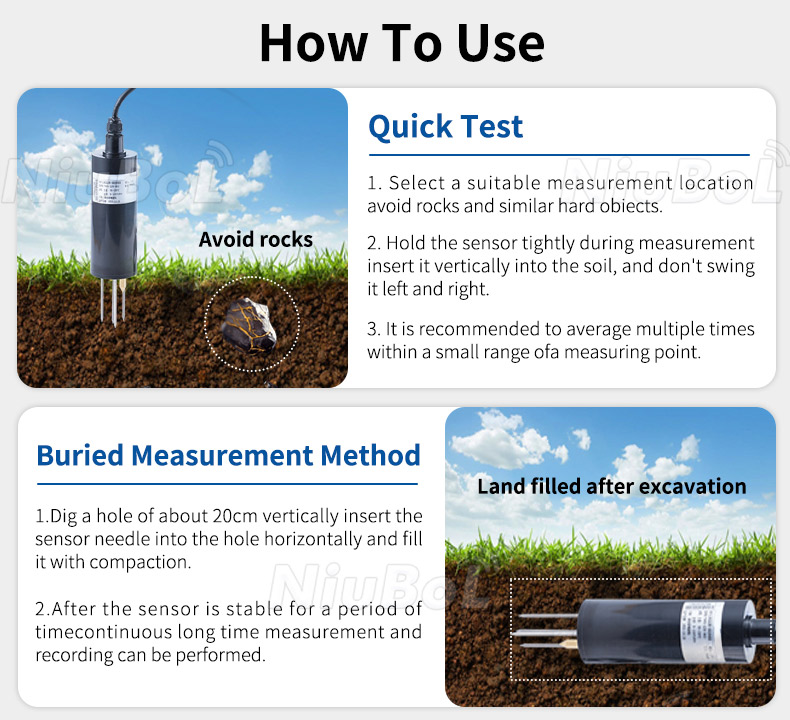
Soil moisture sensors play an important role in agricultural production and water management, and their value is mainly reflected in the following aspects:
- Soil sensors can monitor soil moisture, temperature and other key parameters in real time, providing a scientific basis for agricultural production.
- Through the data provided by the soil moisture sensor, the irrigation plan can be accurately formulated to achieve the goal of water-saving irrigation and precision irrigation, and improve the efficiency of water use.
- Soil sensors can monitor the growing environment and needs of crops, and provide farmers with scientific advice on agricultural management, thus improving crop quality and yield.
- Soil sensors can help farmers more accurately grasp the irrigation needs, reduce unnecessary irrigation equipment and labor inputs, thereby reducing operating costs.
- The application of soil sensors promotes the modernization and intelligence of agricultural production, and improves the efficiency of agricultural production and management level.
Soil moisture sensors are widely used in agriculture, mainly including the following aspects:
- Real-time monitoring of the moisture status of farmland soil, providing farmers with accurate irrigation basis, avoiding over-irrigation or under-irrigation, improving the efficiency of water utilization and reducing waste.
- In the greenhouse, help farmers control the temperature and humidity in the greenhouse, create the most suitable growing environment for crops, improve yield and quality.
- Monitor the soil moisture in different areas and differentiate irrigation according to the actual water demand of crops to improve the precision and efficiency of agricultural production.
- By monitoring soil moisture, we can detect the signs of pests and diseases in time and take corresponding control measures to reduce the impact of pests and diseases on crops.
- Long-term monitoring of soil moisture changes, to understand the impact of climate change on soil moisture, to provide a scientific basis for the development of environmental protection policies.
- To help gardeners better understand soil conditions, formulate reasonable irrigation and maintenance plans, maintain healthy growth of plants, and improve the ornamental value and ecological benefits of gardens.
- Scientific researchers analyze the relationship between soil moisture and crop growth through the data of soil moisture sensor, providing strong support for agricultural scientific research.
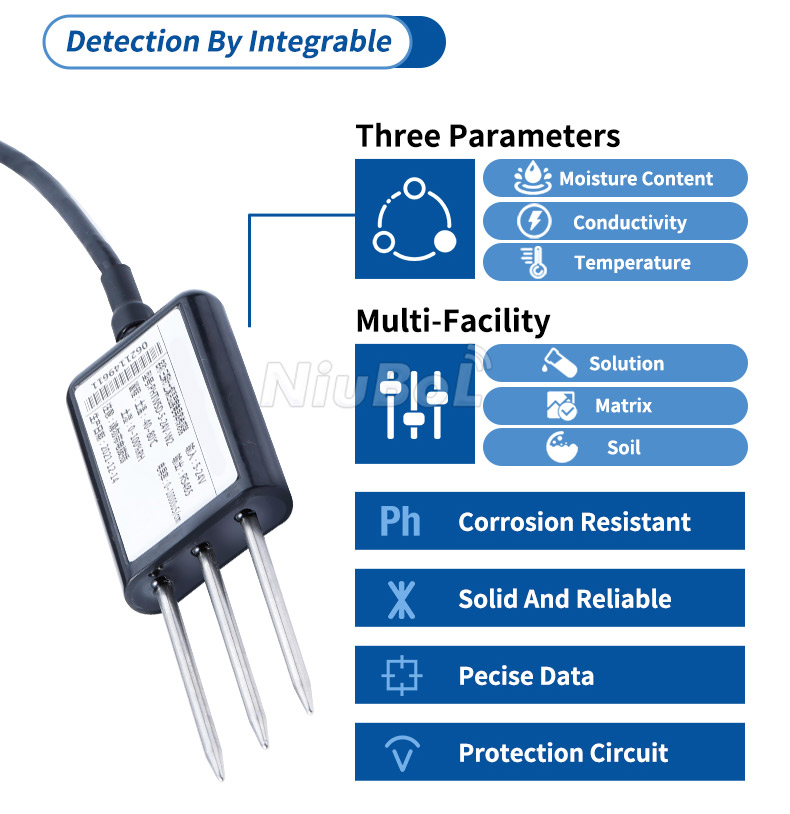
The price of soil moisture sensor varies depending on the brand, model, function, accuracy and sales channel. Here are some general price ranges:
- Prices may range from a few tens of dollars to 300 hundred RMB, suitable for applications with limited budgets and low accuracy requirements.
- Prices may range from 150 to 800 RMB and are suitable for professional agricultural monitoring and research.
- Prices can range from a few hundred and fifty to five hundred RMB, and are suitable for situations where very high measurement accuracy is required.
- Models such as Wi-Fi or Bluetooth-enabled models, capable of transmitting data in real time, are typically priced from 500-1000 RMB, and can be more expensive for high-end brands or integrated solutions.
- Systems customized for specific needs, the price can be up to tens of thousands of dollars, including sensors, data acquisition and processing equipment, software platforms and other complete systems.
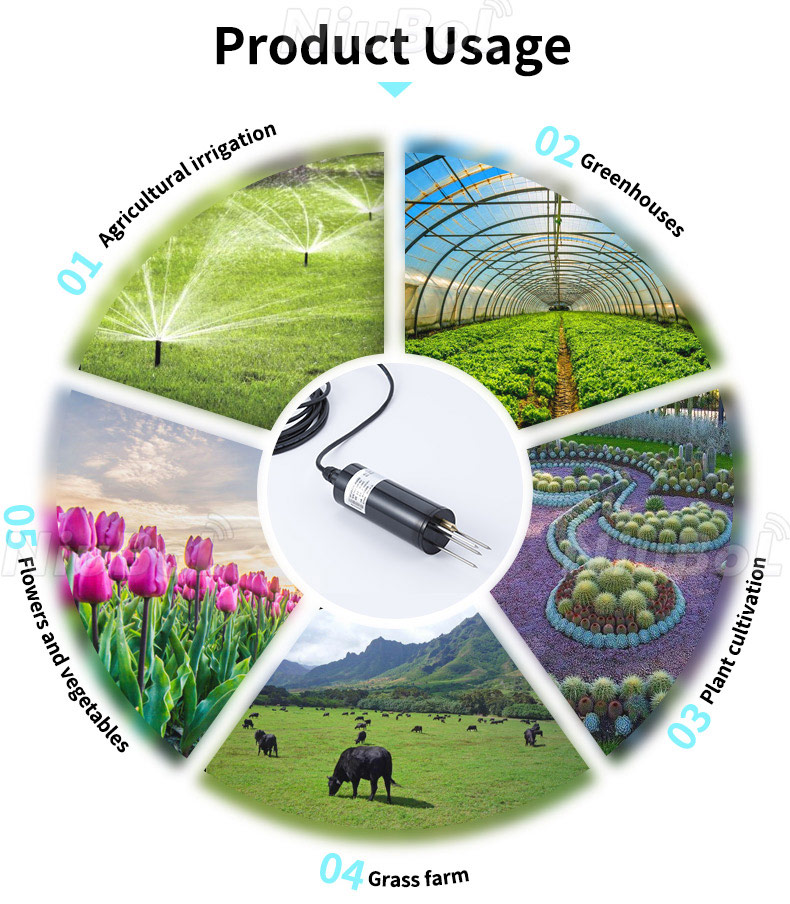
- Before buying soil moisture sensors, it is necessary to clarify their needs and budget, choose the appropriate brand, model and features.
- You can compare the prices of different brands and models through online and offline channels, and choose cost-effective products.
- Check the reviews and feedbacks of other users to understand the quality and performance performance of the product.
- Choose formal channels to buy to ensure product quality and after-sales service is guaranteed.
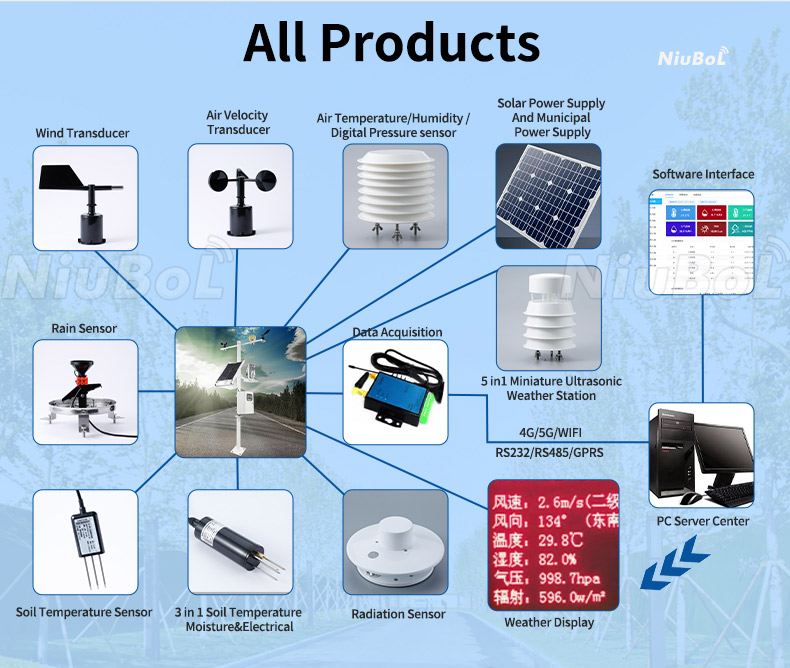
Summarize
Soil moisture sensor is an important tool in modern agricultural technology, through different technical means to realize the accurate measurement of soil moisture. Choosing the right type of sensor is crucial for realizing efficient and water-saving irrigation management. They not only enhance the efficiency of agricultural production, but also promote environmental sustainability, and are a bridge between science and technology and nature, which is of inestimable value in enhancing crop yields and protecting natural resources. With the continuous progress of technology and deepening application, soil moisture sensors will play an increasingly important role in agricultural intelligence.
1.NBL-S-THR Soil Temperature Moisture Sensor datasheet
NBL-S-THR-Soil-temperature-and-moisture-sensors-Instruction-Manual-V4.0.pdf
2. NBL-S-TMC Soil Temperature Moisture EC Sensor datasheet
NBL-S-TMC-Soil-temperature-and-moisture-conductivity-sensor.pdf
3. NBL-S-TM Soil Temperature Moisture Sensor datasheet
NBL-S-TM-Soil-temperature-and-moisture-sensor-Instruction-Manual-4.0.pdf
4. NBL-S-TMCS Soil Temperature, Moisture, Conductivity and Salinity Integrated Sensor
NBL-S-TMCS-Soil-Temperature-Humidity-Conductivity-and-Salinity-Sensor.pdf
Related recommendations
Sensors & Weather Stations Catalog
Agriculture Sensors and Weather Stations Catalog-NiuBoL.pdf
Weather Stations Catalog-NiuBoL.pdf
Related products
 Combined air temperature and relative humidity sensor
Combined air temperature and relative humidity sensor Soil Moisture Temperature sensor for irrigation
Soil Moisture Temperature sensor for irrigation Soil pH sensor RS485 soil Testing instrument soil ph meter for agriculture
Soil pH sensor RS485 soil Testing instrument soil ph meter for agriculture Wind Speed sensor Output Modbus/RS485/Analog/0-5V/4-20mA
Wind Speed sensor Output Modbus/RS485/Analog/0-5V/4-20mA Tipping bucket rain gauge for weather monitoring auto rainfall sensor RS485/Outdoor/stainless steel
Tipping bucket rain gauge for weather monitoring auto rainfall sensor RS485/Outdoor/stainless steel Pyranometer Solar Radiation Sensor 4-20mA/RS485
Pyranometer Solar Radiation Sensor 4-20mA/RS485
Screenshot, WhatsApp to identify the QR code
WhatsApp number:+8615367865107
(Click on WhatsApp to copy and add friends)